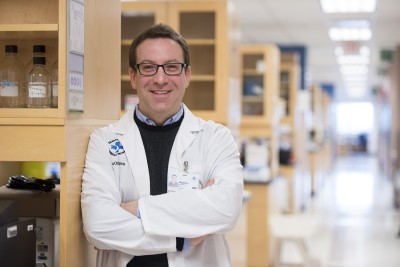With autism, the brain adapts to blood vessel problems by changing how it uses energy
 "This is a paradigm shift in how we think about autism. Understanding why brain blood vessels don't function well could lead to innovative treatments," - Dr. Baptiste LacosteDr. Baptiste Lacoste wants to find out what's going wrong with the blood vessels in the autistic brain. His team was the first to discover that these blood vessels don't work properly in mouse models of autism, and there's some cellular evidence that this happens in humans as well.
"This is a paradigm shift in how we think about autism. Understanding why brain blood vessels don't function well could lead to innovative treatments," - Dr. Baptiste LacosteDr. Baptiste Lacoste wants to find out what's going wrong with the blood vessels in the autistic brain. His team was the first to discover that these blood vessels don't work properly in mouse models of autism, and there's some cellular evidence that this happens in humans as well.
Now, in a new study published in Cell Reports, the team has found that blood vessel problems in this mouse model cause the brain to absorb glucose at a much higher rate than a neurotypical brain, consistent with less efficient metabolism.Glucose is a sugar that the body uses for energy, and the blood vessels control how much glucose gets into the brain cells.
The team also found that the cells lining these blood vessels (known as endothelial cells) have fewer mitochondria, the cell's powerhouses, because a genetic switch that controls their production is missing. This problem in the blood vessels forces the brain to change the way it uses energy, which may be causing the behavioural changes seen in autism. Now that they've identified this problem, Dr. Lacoste's team is looking to bring back this energy switch. Preliminary findings they've presented at recent scientific conferences suggest this may help normalize function in the autistic brain.
"This is a paradigm shift in how we think about autism. Understanding why brain blood vessels don't function well could lead to innovative treatments," - Dr. Baptiste Lacoste, senior scientist at The Ottawa Hospital, and associate professor at the University of Ottawa.
Authors: Alexandria Béland-Millar, Alexia Kirby, Yen Truong , Julie Ouellette, Sozerko Yandiev, Khalil Bouyakdan, Chantal Pileggi, Shama Naz, Melissa Yin, Micaël Carrier, Pavel Kotchetkov, Marie-Kim St-Pierre, Marie-ève Tremblay, Julien Courchet, Mary-Ellen Harper, Thierry Alquier, Claude Messier, Adam J Shuhendler, Baptiste Lacoste.
Funding: Canadian Institutes of Health Research, The Scottish Rite Charitable Foundation of Canada, J.P. Bickell Foundation, U.S. Department of Defense office of the Congressionally Directed Medical Research Programs, Natural Sciences and Engineering Council of Canada, Canadian Foundation for Innovation and the Ontario Research Fund, Fonds de Recherche du Québec-Santé. All research at The Ottawa Hospital is also enabled by generous donations to The Ottawa Hospital Foundation.
Core resources: uOttawa Metabolomics Core Facility, Transmission Electron Microscopy Core
The Ottawa Hospital is a leading academic health, research and learning hospital proudly affiliated with the University of Ottawa.
Learn more about:
The Ottawa Hospital is a leading academic health, research and learning hospital proudly affiliated with the University of Ottawa and supported by The Ottawa Hospital Foundation.


